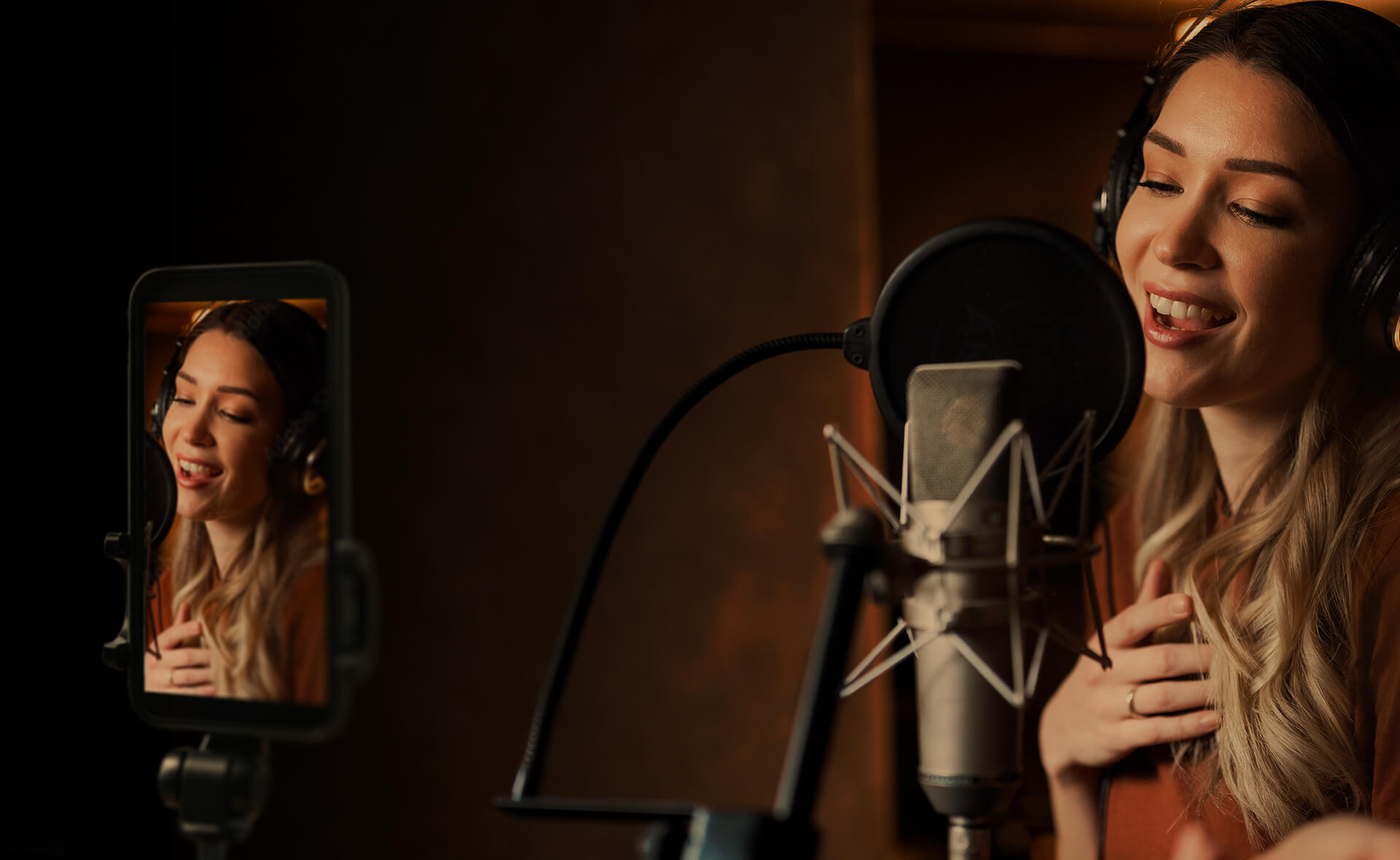Learning to sing is a possibility for the vast majority of people. I have met countless singers who avoided singing for years unnecessarily. Despite the fact that most people can learn to sing well and make significant improvement, there are people everywhere confining their singing to bathrooms. I have worked with many singers who considered themselves tone deaf only to discover in the first session that they are perfectly capable of singing in tune when given the opportunity.
There are a multitude of reasons why so many of us have reservations about our singing. People are often labelled unfairly at a young age as bad singers and carry that with them from then on. Unfortunately, experiences like this can stop someone from enjoying singing for a lifetime.
More people in the world want to sing than do sing. I’ll talk to a bank president, I say ‘everyone has a beautiful voice’ and he’ll smile and say ‘Not me! You couldn’t teach me to sing.’ and his face says, I want to but I don’t believe I can.[1] (Jo Estill)
[1] Jo Estill, s.v. ‘Jo, In Her Own Words’ https://www.youtube.com/watch?v=TLtijBWN8uQ accessed on 12/10/2019
Many of us instinctively know that singing is good for us but we are seeing more and more research that confirms this. If you have ever wished you could sing… start!
Am I tone deaf?
Amusia is the technical terms for tone-deafness and it does exist; however, it is much rarer than people think. Amusia is not just an inability to sing in tune but a defect in processing pitch. If you can tell the difference between a high note and a low note, the chances are this isn’t you.
If you are still unsure, there are a number of free tests for tone-deafness available online. However, in my experience, even students with considerable difficultly matching pitch (getting the right notes) can find singing hugely rewarding. If you want to sing you should. It’s still very possible to benefit from expressing yourself with your voice.
Is it too late?
As we progress through life we tend to get very good at certain things. Unfortunately, this can mean we resist the things we are not so good at. It can seem frustrating or even impossible to practise a new skill if you don’t see immediate success. In my experience, learning can be as satisfying as it is challenging. Not only are adult students often surprised by their own progress but find the change in perspective fulfilling. Adult learners usually have the advantage of being much better equipped to manage their time, practise consistently and have a more independent approach to their learning. These skills make it possible to progress more quickly and efficiently.
Where to start?
Singing Lessons
For some, singing lessons are the ideal place to start; however, they aren’t for everybody. Often I am asked whether there are any requirements for starting lessons. Fortunately, there is no minimum ability or experience required to start lessons. If everybody were already perfect singer teachers wouldn’t exist. If you decide to go for a singing lesson remember that it is a teacher’s job to help. You wouldn’t go to a doctor with a broken arm and show him your well arm! A good singing teacher doesn’t just tell you what’s wrong but gives you the tools to fix it.
What can I do without a teacher?
Even without a teacher, it’s very possible to make huge improvements in your singing. In my opinion, the best way to start is to learn some songs. How many times have you seen started singing along to a song only to discover you only know the chorus? Even with very familiar songs, we often only know the most memorable moments. By learning a song better we give ourselves a much better chance of singing confidently and accurately.
Learning a song
Which song to pick?
Finding your comfort zone
When picking a song for yourself make sure to pick a song that feels comfortable in your voice. Every singer has a tessitura. This is the range where your voice feels most comfortable. When you find this ‘comfort zone’ you will find your singing is less effortful and it’s easier to sing in tune. It is much harder to sing freely and accurately if the notes are higher or lower than your voice sits comfortably. At first, this is usually around the same range as your speaking voice. As you develop it isn’t unusual to find that this comfort zone expands or moves.
- Pick a song
- Learn the words
- Learn the melody and timing
- Put it all together
Initially, some beginning singers might not be able to tell whether they are singing in tune or not. That’s okay, at this stage you just want to give yourself practice singing. You want to feel really confident that you know all the words, the timing and the general shape of the song. There shouldn’t be any sections where you find yourself mumbling or skipping over the tricky bits.
Listen to music
Listen to music and listen widely. We have music around us all the time in TV and film, in the supermarket or while we work; however, I would recommend you take some time out to listen more actively to music. Turn your phone off and set aside a few minutes to put on some music and make that your only focus. Follow along with the music, paying attention to where it goes high and low, where it gets louder and quieter, to the words, to the quality of the voice and instruments. It should be like following a good story. When you start to do this you will stop having a passive relationship with the music not only will your ear improve but so will your enjoyment of the music.

